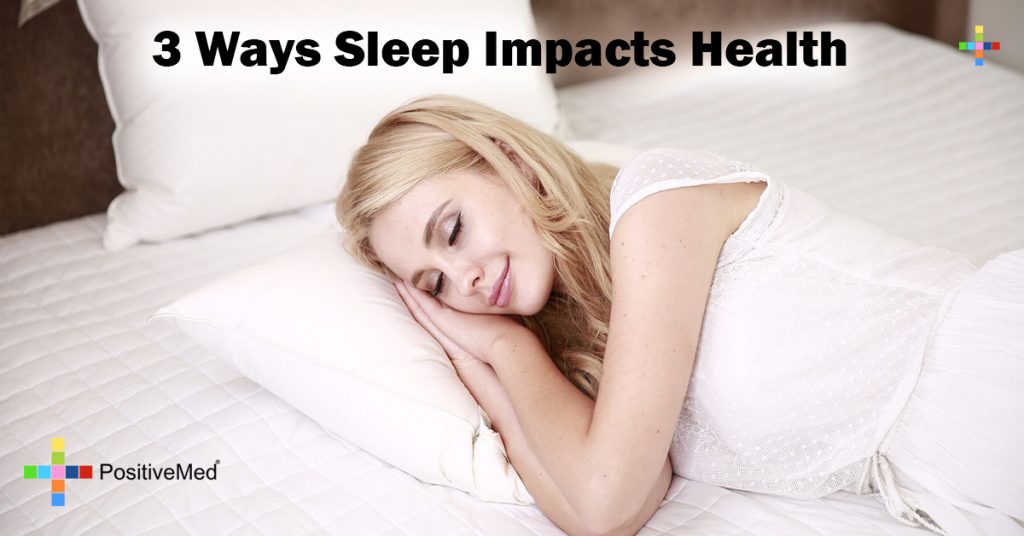
It’s no secret that sleep is vital for maintaining optimal physical, mental, and emotional health. However, most people don’t get enough of it. Most adults need seven to eight hours of sleep each night, yet, according to a recent Gallup poll, the average American gets just 6.8 hours of shuteye each night.

1. Mental Impacts
Lack of sleep can potentially lead to the development of mood disorders. If insufficient sleep becomes a chronic issue, it can lead to long-term disorders including anxiety and depression. Researchers from the University of Pennsylvania found that people who were limited to 4.5 hours of sleep each night for just one week reported feeling more stressed than usual and were also more sad, angry, and mentally exhausted. However both anxiety and depression symptoms can be eased by improving your sleep habits. After returning to their normal sleep habits, the subjects from the University of Pennsylvania study reported a dramatic improvement in mood.
A good night’s sleep gives the brain a chance to restore itself. During the day, neurons in your brain are busy producing a chemical called adenosine. As adenosine builds up, it causes you to feel sleepiness. While sleeping your body removes the adenosine, which helps you feel re-energized, alert, and awake in the morning.
2. Emotional Impacts
According to Psych Central, sleep deprivation can lead to decreased sociability and optimism, which can make you feel both less friendly and less hopeful. As we all know, people suffering from lack of sleep are also much more irritable than their well-rested counterparts, making them more likely to “snap” or overreact when faced with challenges.
Sleep deprivation can also impair your creativity. Research suggests that lack of sleep has an effect on certain cognitive processes that rely on our emotional experiences. In addition, sleep deprivation lowers the stress threshold, which can make every day, routine tasks like doing the dishes or taking the dog out for a walk feel like overwhelming feats.
Experts agree that proper amounts of sleep can help you get along better with people, help you think more clearly, and can even help you make good decisions.
3. Physical Impacts
In addition to feeling groggy and sluggish after a night of poor sleep, the physical impacts caused by poor sleep include a number of health problems and even diseases like obesity, heart disease, diabetes, and hypertension. Lack of sleep can even slow down immune function. For example, people who don’t get quality sleep are more likely to catch a cold than their peers who get adequate rest.
Not only can the right amount of sleep help to decrease the risk of developing the aforementioned chronic conditions, but sleep experts also report that a good night’s rest can help to rejuvenate your body’s tissues and even promote muscle development. And, during REM sleep, muscles are in a relaxed position which can help to ease tension and relieve symptoms of chronic pain, according to Sleep.org. Good sleep can also help you maintain a healthy weight. Researchers at Sweden’s Uppsala University have linked proper sleep to the prevention of weight gain and their studies have shown that lack of sleep drastically slows down a person’s metabolism.
How to Get Better Rest
There are many factors that contribute to sleep deprivation. The Mayo Clinic reports that medications can interfere with sleep, including allergy medications, antidepressants, stimulants, and some heart and blood pressure prescriptions. Nicotine, caffeine, and alcohol consumption can also disrupt sleep, and eating too much too late at night can cause interruptions in normal sleep patterns.
Interruptions to your body’s circadian rhythms, like traveling to a new time zone or changing your work schedule, can disturb sleep, too, according to the Mayo Clinic. Also, new research has shown that the light emitted from the technology we use, like our smartphones and tablets, can impact sleep as well. The first step to achieving better sleep is identifying the causes of your sleep deprivation.
A comfy bed is essential. Experts say that you should have enough room to turn and stretch comfortably, and they suggest experimenting with different levels of mattress firmness and softness until you find a comfortable sleeping position. Consider a mattress style that offers personalized features like Personal Comfort adjustable beds for a more restful night’s sleep. Other considerations like following a sleep schedule and keeping the room cool, around 65 degrees, can promote better sleep. Finally, eliminate all technology, including televisions, cell phones, laptops, and artificial light sources like alarm clocks. This should help you achieve a better night’s rest.





